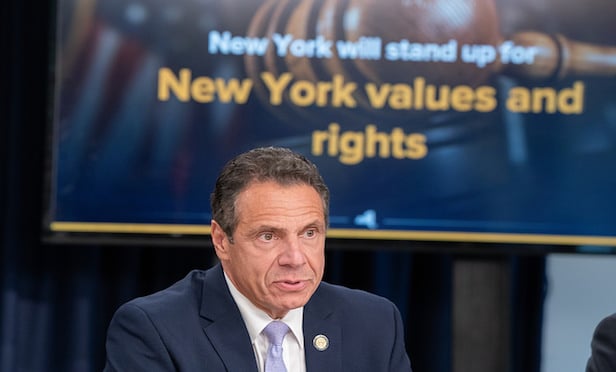SPRINGFIELD, NJ—New Jersey commercial property owners and investors need to keep close tabs on local property tax assessments to ensure that their properties are fairly valued, or they may be overpaying taxes, warns a New Jersey attorney specializing in property tax appeals.
Daniel Kanoff, an associate at Springfield-based Blau & Blau, tells GlobeSt.com exclusively that commercial property owners and investors should carefully evaluate assessments on their properties with an eye toward appeals. In most counties, tax appeals must be filed by April 1 of each year (in Monmouth County, a pilot reassessment project makes the filing date January 15).
Kanoff, who practices in the areas of property tax appeals, eminent domain, and real estate and has appeared before the New Jersey Superior Court, the New Jersey Tax Court, and many of the 21 county boards of taxation, gives property owners some guidance on the tax appeal process. Part two of this Q&A will appear on GlobeSt.com tomorrow.
Question: How does the New Jersey property tax appeal system work?
Kanoff: There is a defined process that appeals work through.
- Assessments of $1,000,000 or less must go to county board of taxation first.
- Assessments of more than $1,000,000 can go directly to the New Jersey Tax Court.
Either way, appeals must be filed by April 1, unless there is a municipal wide reassessment of revaluation. However, in Monmouth County, a pilot program is underway and appeals need to be filed by January 15. If there is a revaluation, the date is extended until May 1.
Question: What is a revaluation or reassessment?
Kanoff: Typically, except in Somerset County, assessors just carry the assessment forward from one year to the next. In Somerset County, there is an annual reassessment, not because of any rule, just because local custom. As real estate values increase the ratio of assessed value to true value decreases. If in the revaluation year every property is assessed correctly, the ratio is 100%. If, over time all values double, the ratio would decline to 50%. When the ratio gets too low, assessor's will often bring in an outside firm to bring all the assessments to true value.
Question: New Jersey property tax appeals come under something called Section 123 – what is that exactly?
Kanoff: Section 123 describes the procedure for valuation of property. Every municipality has a different ratio.
Question: So what should commercial owners know about the ratios?
Kanoff: They should be aware that there is a ratio and it changes every year. It's a moving target, so what you have to prove to win an appeal also changes every year.
Question: How do you figure out whether your property is assessed properly?
Kanoff: You make the evaluation based on examining the current rent rolls, recent leases, and leases in the area. You take the assessment, find out the ratio, and calculate something called the “upper limit value” – that is the highest value range in which the property can be valued for you to win an appeal to get the assessment lowered.
Question: How successful have you been with appeals?
Kanoff: We're having success in the low to mid 90 percent range, but that's because we carefully evaluate every case for its likelihood of success before we submit the appeal.
Tomorrow: Kanoff examines the math behind a hypothetical property tax appeal.
Corrections: The article incorrectly stated that a pilot reassessment project in Monmouth County makes the filing date January 1. The correct date is January 15. In the discussion of Section 123, the article originally stated that every county has a different percentage ratio. That was not correct and has been deleted.
© 2025 ALM Global, LLC, All Rights Reserved. Request academic re-use from www.copyright.com. All other uses, submit a request to [email protected]. For more information visit Asset & Logo Licensing.








